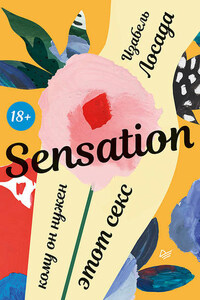Neuro-linguistic programming is the basis of a bright orgasm
In neuro-linguistic programming (NLP), anchoring techniques are used to achieve and enhance the orgasm received by a woman.
In my practice, I often use these techniques to solve problems in the sexual sphere, to treat anorgasmia of my patients.
You can also learn these techniques by reading this book and apply them in practice yourself. Thus, you will help yourself, dear women, to feel the fullness and beauty of sexual pleasure.
Orgasm is the culmination of sexual arousal, characterized by a strong sense of satisfaction, pleasure.
We will talk about such techniques, thanks to which you can launch in your brain and(or) in the head of a man a whole chain of associations related to obtaining and prolonging an orgasm, with what you want to put an "anchor"on.
An anchor is an action that triggers an associative chain of reactions, in essence, it is the creation of a conditioned reflex.
Therefore, in the treatment of anorgasmia, the use of neuro-linguistic programming is one of the most popular methods of modeling, forming and changing consciousness.
Anchoring as a method is used as a therapy for sexual disorders. As the most effective strategy for getting an orgasm or enhancing sensory experiences with its small palpability.
In general, NLP is a method of psychotherapy created at the intersection of neurology and linguistics. It is based on the fact of the powerful influence of language forms and structures on the consciousness and subconscious of a person.
Originally created as a medical science about healthy thinking, NLP immediately flowed from medicine into big business, management, advertising and other areas of life
And it is not surprising. It is used to enter the flow state and achieve the desired resource state. After all, anchors contribute to the speed of entering the working state, focus on the main thing, switch to any given desired situation, perception.
And now the important thing! It turns out that you can use this technique more widely, and make the anchor of the man you like on yourself. That is, to form a clear binding of a loved one to yourself.
Anchors are persistent associations associated with a certain external stimulus and help to quickly switch from one mood to another.
Types and techniques of anchoring
1. Kinesthetic.
Touching, kissing or hugging at the peak of positive emotions.
For example, shaking the wrist or stroking the shoulder in a moment of happiness, joy, or even during laughter.
If you repeat this movement repeatedly – from 10 to 30 times-you can later use the selected gesture to calm your loved one in moments of anger and rage.
Kinesthetic anchors: touch, massage, cold or heat, ductility or viscosity, stiffness or tenderness-this includes the tactile memory of the skin, with which the emotion is associated.
2. Visual.
Each pair has its own special, sexy-tuning outfits. And even the clothes that say, " don't come near me, I don't want sex today." Such attributes in the form of clothing appear over time, but they can also be programmed.
For example, you can decide for yourself to seduce a man in fishnet stockings, only in black underwear or without underwear at all, but certainly with red lipstick and a pearl necklace, or choose patent hairpins, or a provocatively short skirt.
And in the future, this or a similar image will cause only one sexual thought and it is about you.
Visual anchors: color, brightness of lighting, image, picture – any visual impression that responds to memory with a pleasant or negative moment
3. Olfactory.
Smells. Use scents for this.
You can easily choose a fragrance from a variety of perfumes that will be associated by a man only with you. In this case, even a drop of perfume can remind a man of pleasant moments together.
Scented candles, seasonings, smells of ready-made aromatic dishes, loved by your man, have a similar effect.
Olfactory anchors: all kinds of smells and aromas-from pre-storm air to spices and perfume.
4. Auditory.
Here we will talk about music.
The term "our song" as an element of lyrics and memories is often found both in movies and in everyday life. This is also an anchor.
Additionally, you can anchor a man to affectionate words when meeting or saying goodbye, some invented nicknames, code phrases that are understandable only to the two of you.
Auditory anchors: music, birdsong, the timbre of the voice, the sound of the sea, the crackling of wood in the fire – everything that can be associated with significant memorable events.
Specialization in anchoring techniques is very important.
Since, if the output to the resource state is the main goal, then you need to clearly indicate the place and time of action. Otherwise, an incident may occur. For example, you may accidentally fall into a working concentration on a vacation by the sea just from the smell of coffee. But if the anchored aroma of coffee is a certain variety and only a specific mug, then one smell will not be able to work as a simple anchor.
This is how anchors work in NLP.
Moreover, the anchor should be complex, specialized, understandable to you and causing persistent associations.
How does the anchoring process begin?
The mechanism of anchoring memory is based on one of two manifestations.
1. Strong emotional impact.
2. The number of repetitions.
Both components participate in the formation of the anchor in various combinations, but we are more interested in the relationship.
So, the stronger the emotional component, the fewer repetitions you need to anchor!












